There aren’t a ton of things that scare me. One of them, as I mentioned in my last article, is getting sued. People are crazy and can sue you (and win) over nothing. Another thing that makes me shiver is the thought of people thinking I’m a bad person or even worse, getting in trouble with the law.
My whole life I’ve been that person that tries to follow the rules. If a teacher said to put my name in the top right corner, I did it. If a mattress said to not remove a tag, I wouldn’t. It really didn’t matter how ridiculous it was, I never wanted to get in trouble. I’m still like that to this day. The thought of getting reprimanded makes my stomach hurt, so I try my best to follow all the rules.
All my life, though, I’ve noticed that other people don’t necessarily have the same respect for the rules. Many people couldn’t care less and just do whatever they want. Even photographers do this, and we are the best people in the world. Being the rule following type I am, I thought I’d share 7 unethical and illegal things photographers do.
7 unethical and illegal things photographers do
So my point to this article is not to judge you or even really to scare you. I’m mainly writing this to educate people out there. Just like our clients might not know it’s wrong to screenshot our images, there are plenty of photographers out there making these mistakes only because they don’t know any better. So read through all of these and see if there are any that you’ve been doing. You might be surprised.
1. Drone Photography
I’ve had a drone now for about 7 months, but I’ve only used it about 12 times. I’ve been very careful about the situations I’ve used my drone because there are some major restrictions and laws out there. If you mess up, you might be dealing with the FAA.
Recently I passed the Part 107 test, which gives me a license to fly small, unmanned aircrafts. Technically, most drone photographers need this license. If you are using your drone to make money, you need the license. If you are just flying for fun, then you don’t.
Still, there are people with the license that aren’t following all the rules. There are limitations about where and how you can fly, and I’ve seen people posting shots that seem to ignore the rules. You aren’t allowed to fly over people or into certain areas. This happened to me Saturday. I was at a wedding and was going to do some video with the drone. When I got it set up, it told me I was in Class C airspace. I looked and I was right on the edge. I thought about flying anyway, but I didn’t want to risk it. There are ways to get permission to do all types of things, but I didn’t have time, and I doubt most of these people are going through all of the steps.
If you are a drone user, please be careful! Drones can destroy property or hurt people. If that happens, you will be the one held responsible.
2. Trespassing
I still remember that night very clearly. I was doing some senior portraits, and we went to a field near my house. This area used to be a golf course, but it had been closed for several months. I had my flash setup and we were shooting for about 10 minutes when I saw a truck racing through the field toward us. It was the owner, and he wasn’t happy.
I tried to explain myself, but I didn’t really have a great excuse. I ended up apologizing and we left. I felt like a real jerk for making that guy come out there, and I felt even worse for putting the client through that experience. All of this could have been avoided if I had simply gone somewhere that was open to the public or if I had asked for permission.
I think photographers trespass quite often. We see something beautiful and we want to use it. We don’t have any ill-intent, but we are still going somewhere without permission
Now, are you always going to get caught? Probably not. In most cases, the owners don’t even care. Does that make it ok? No!
So what type of places are off limits? Well, that’s hard to know. Many places will post signs tell you if you can’t go somewhere. In general, though, you shouldn’t go onto someone’s property or go past any kind of barriers. This could be fields, roads, or even parts of parks. There are even restrictions in some cities about doing sessions in public. Depending on where you live, you might have to get a permit. With all of this said, it’s best to plan ahead and get permission first before you try to photograph somewhere and get in trouble. For more information, check out this recent article on trespassing.
3. Photos of People without permission
I was watching a documentary a few months ago on Michael Jackson. When he was unconscious and leaving his house in an ambulance, a professional photographer somehow managed to get a shot of Michael through the window of the ambulance. The photographer made a ton of money for this one photo, but can you imagine how horrible this made Michael's family feel, having that private moment for everyone to see?
I know the majority of us aren’t the paparazzi, but I believe we should all give people their privacy and freedom. We shouldn’t be taking pictures of people unless they want us to. This means asking permission before or after we take a photo.
Now I know this isn’t always possible. If you’re taking a photo of a giant crowd, you can’t get a model release or ask permission from everyone. The same is also true for certain events. If you’re working for the newspaper and you're covering a trial or some kind of political event, you have to take the photos and you probably won’t be able to get permission from the person.
Laws are different from state to state, and I know that a lot of the time if people are out in public, they are fair game. It might be legal, but is it right? My suggestion is to just be sensitive to others. Fall on the cautious side and ask permission as often as possible.
4. Not Pay Taxes
The government loves its money and needs it to survive. There are taxes for tons of situations. You buy something, you get taxed. You sell something, you get taxed. You own property, you get taxed. If you aren’t paying taxes related to your photography, you are taking a big risk and could get hit with a huge fine.
The three types of taxes photographers need to worry about and often don’t pay are sales tax, income tax, and use tax.
Every time you get paid for a job, you should be collecting and turning in sales tax. For a while, I was including sales tax in my price and then paying out of the whole, mainly because I was afraid of what people would say when there was that extra charge. Now, though, I’m over that and I calculate sales tax based on the price of the shoot.
Income tax can really kill a business. For most photographers, income tax will pop up around tax season, and if you haven’t been saving for it, it could ruin you. I remember one year while I was still a part-time photographer that I got hit with $4000 in income tax. I nearly had a stroke. Now, I pay quarterly so it doesn’t come out in such a big chunk.
Do you buy camera equipment online to avoid sales tax? If you buy that $5000 camera online versus in a local store, you’ll save about $500 in sales tax, but is that legal? Technically, if you buy something, you are supposed to pay sales tax on it. It really is your responsibility to report and pay that tax under a section called Use Tax. I don’t know if I’ve ever heard of someone getting caught for this, but this could really add up. I’d suggest you just go ahead and buy locally and then you don’t have to worry about it.
5. Steal Software
I still can remember the first time I heard about Napster. I was talking to someone through AOL Instant Messenger, and they said they were downloading songs. I was amazed that you could do that, so I started doing what everyone else was doing and downloading music.
Napster was the start of all of that illegal downloading, but it quickly spread to movies/tv shows, video games, and software. You could basically find a torrent for about anything you wanted, and it all was free.
I’m not sure what’s out there because I don’t download things illegally anymore, but I’m sure photographers are still doing it. If you’re downloading products like Photoshop, plugins, and templates, then you’re breaking the law.
I know free is good, but it can also get you in trouble. With Adobe CC these days, Photoshop and other Adobe products are much more affordable than they use to be. You can afford the $20 a month. Pay it and stop downloading things illegally.
6. Copying Other Photographers
Going through school, it seemed like in every class there was that one kid that wouldn’t do his work, would copy off of everyone, and the teacher had no idea. Those kids drove me insane. Unfortunately, it seems that some of those kids grew up, became photographers, and are still copying off of everyone else.
Let me try to clarify what I mean. It is impossible to not copy someone. The photo you just took will look like the photo 300 other people took. You probably used the same pose and maybe even the same lens. Is that what I’m talking about? Not really.
There is nothing wrong with being inspired by other photographers or even similar. The problem comes in when you are purposely copying everything for your gain. If you show up to a shoot with only reference photos that you are going to use and no ideas of your own, that’s copying. If you design your website to look exactly like another photographer’s, that’s copying. If you use the exact same collections and pricing, that’s copying. Of course, the worst thing would be to actual download someone’s photo and claim it was yours.
I know all of those examples seem extreme, but it does happen. Don’t be like those people! Be original and do things your way. Most likely you will be more successful when you put in the work versus just copying someone else.
7. Using Music
Have you ever visited a bunch of photography websites and they all have songs playing? Some play stuff I’ve never heard but others are playing mainstream music. There was one site in particular that had 5 songs that were in the top ten. Now, some of those songs you couldn’t even get the rights to, but the others were about $100 a piece. Do you think the photographer paid to use those songs? I highly doubt it.
If you’re using music on your website, creating slideshows, or some other form of presentation, you need to purchase the rights to use the song. This is not the same thing as going to iTunes and buying the song. That’s only for your personal use.
There are several sites out there where you can buy a song to use in a project. Some of the top ones are Triple Scoop Music, Song Freedom, Musicbed, and Soundstripe. Each one of these has different songs, different prices, and different uses. Make sure you read carefully before purchasing. Some of the sites give you a one time use and others sell unlimited use.
If you don’t want to pay for music, there are some sites out there with free music. I’ve used songs from Free Music Archive, but there’s a long list of sites here. In most cases, you can use the songs as long as you give credit or a link back to the artist.
Conclusion
We’ve all made mistakes, and I’m not here trying to judge any of you. I’ve done several of these things throughout my career, and luckily, I never got in trouble for any of them. Now that I know better, I try to avoid doing any of these 7 unethical and illegal things photographers do. You're in charge of your life and your business, but I highly suggest you try to avoid them as well. I’d hate for anyone to get in trouble over something as small as using a song.
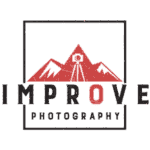
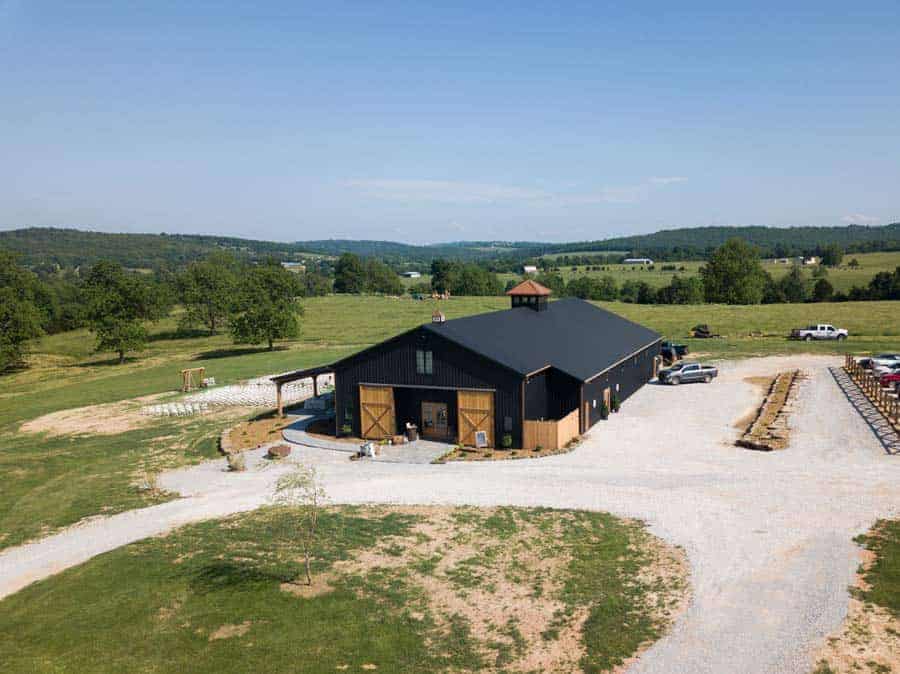
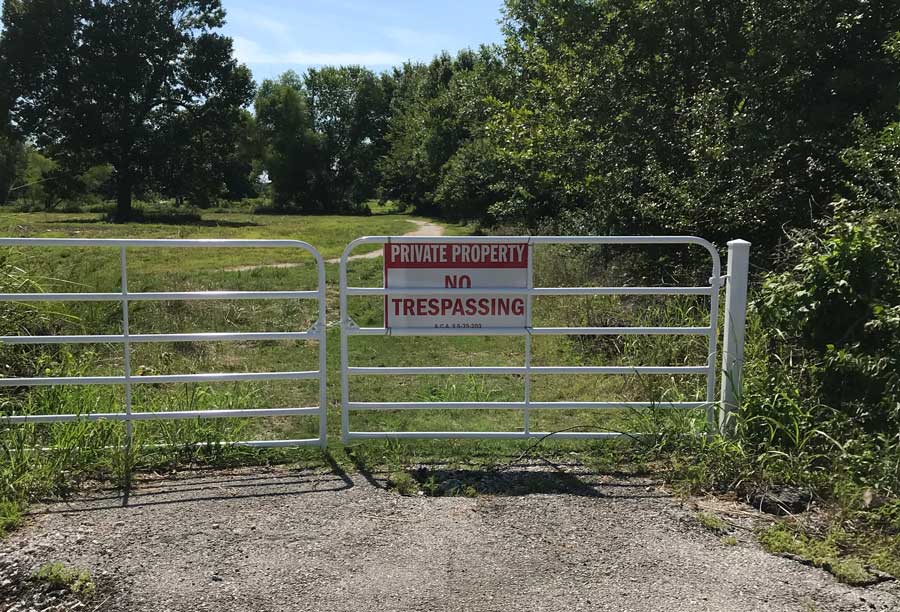
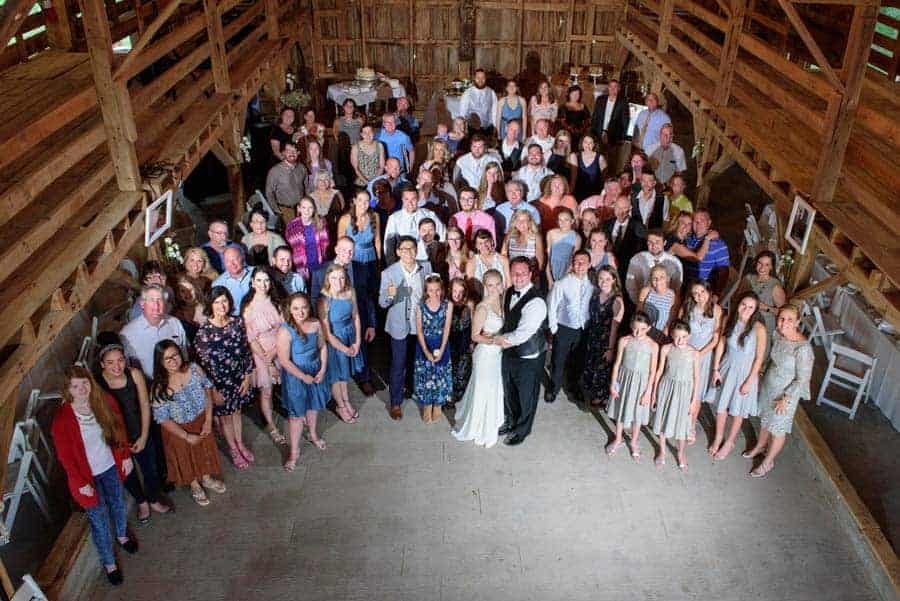

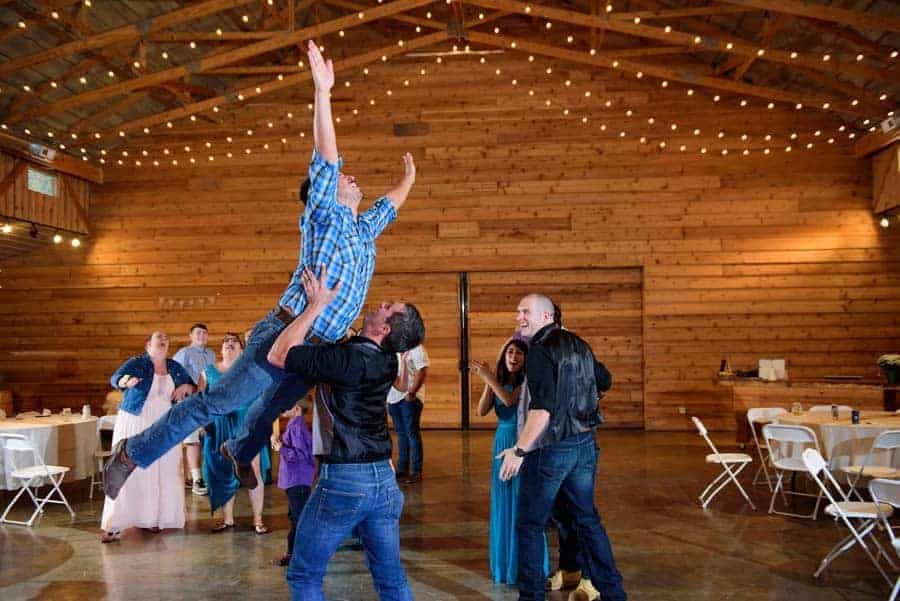
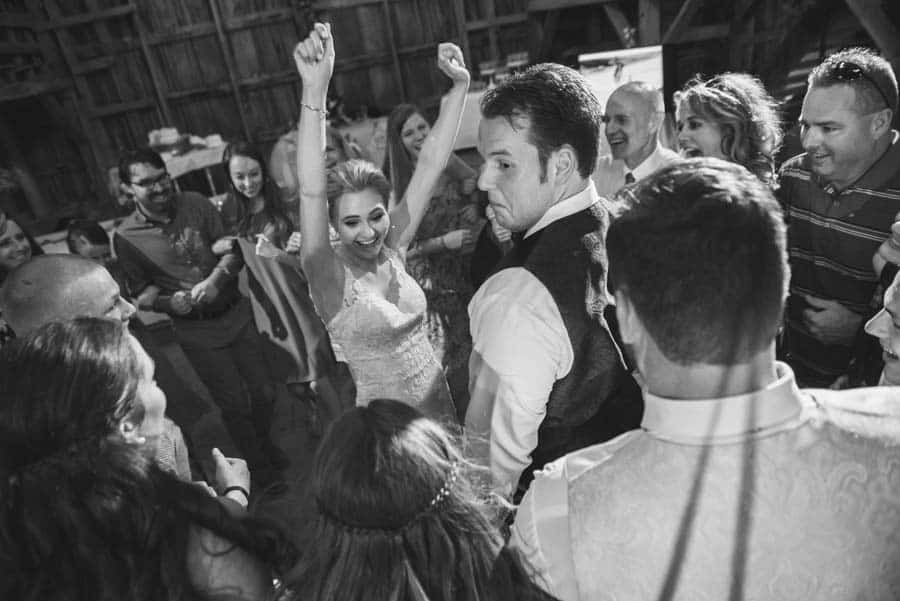
Numbers two and four, guilty….and unashamed. I trespass yearly to a beautiful waterfall on private property. The owner busted me once a few years ago, picking up beer cans, cigarette butts and twinkie wrappers, etc lining the brook. As I was putting the trash bag in my truck he said the garbage and damage to the falls are the reason for the sign. He gave me verbal permission to photograph there. Also, Uncle scam has gotten his “fair share” out of me over my sixty eight years, that’s enough.
I figured your article would have something about photography, but your illegal things are basically things that could be or are done by regular people with no interest in photography. What about stealing photos, altering them, misusing them? You know, things that apply directly to photographers. Sure, trespassing is illegal and could be done by any stupid person, including photographers, but stealing a photograph is much more prevalent in the photography community.
Hi Steve
Sorry you didn’t find it helpful. I did mention stealing images but I didn’t go into detail. Yes normal people do these things as well but I see it a lot in the photography world and it’s more of a problem when you are a business. Stealing music is bad but distributing it to clients can get you in more trouble.
I’m pretty sure the Future Farmers of America (FFA) won’t care what you do with your drone. But the Federal Aviation Administration (FAA) may very well take note.
Ha, you’re right. They probably wouldn’t care unless you crashed it into a cow!
n
Bryan,
Thanks for the effort and time for this article. You make several excellent points.
Regarding copying and copyright infringement, as artists we really need to respect the work of others. If we, as creatives, don’t show respect for others work how can we expect clients to respect and not steal our work?
Regarding liability, you are smart to be cautious. One thing that might put your mind at ease is liability insurance. You didn’t mention it in your article, and you may have it already. For those who are unfamiliar with it, groups like PPA Professional Photographers of America have basic equipment insurance as part of their annual membership, and they have companies they work with who can offer broader and more extensive insurance (drones, liability insurance) at a pretty reasonable price. You can find this insurance on your own, but they take a lot of the headache out of it. Their membership will cost you about the price of one or two portrait sessions. They also have free video tutorials as part of their membership. There are other groups out there as well like the American Society of Professional Media Photographers. I find insurance greatly reduces that anxiety you talked about. Having a written contract with all of your clients, even friends, will also reduce your exposure to liability.
Regards,
Kevin Gilligan
http://www.photosbykag.com
People have made solid careers out of No 3 and are highly regarded. Bresson?
I think #6 copying other photographers is a little ridiculous. No photographer owns a certain pose or a pricing model. Very few photographers actually own the design of their websites. It’s not unethical to browse photos from another photographer and copy their compositions, lighting, poses, or editing. In landscape photography, it’s actually very common to copy a comp. I imagine in wedding or bridal photos, it’s very common for a bride to say “I want this pose.” It would be pretty unrealistic for me to say “Sorry, that pose has already been done, I can’t do it for you. That would be stealing.”
Hey roxanna,
I agree there are jobs and times where it is necessary. I meant just in general getting permission if it’s possible and being considerate of others.
Hi rob. I agree it’s impossible to not copy to a degree. As I said it’s more about overall what you are doing. If you are purposely copying someone and not putting in any of the work I think that’s wrong.
Regarding sales taxes I was under the impression that the key distinction is whether you are providing a product or a service? If you sell prints or books then you should charge sales tax. But if you are just providing digital copies, which is really just a license to use them, then you don’t need to worry about sales tax because there are no actual goods. Am I wrong to think this? I’ve always been a stickler for the rules too!
Hey Stephen,
I believe it depends on what state you are in. I got an email from my state department about a year ago and my tax guy said I needed to be charging sales tax on digital products. Sorry I can’t give you a more exact answer.